I picked up the 15-passenger van in Austin last Monday afternoon. After a bit of hassle, including expert coordination between my office manager and our corporate insurance agent, I was on the road to Houston to gather with comrades from the Dignity in Schools Campaign (DSC).
Incredible organizers from Mississippi, Louisiana, and North Carolina came to southeast Texas to continue our work from last year in Jackson. In that Southern capital city in 2023, we spoke out against corporal punishment (the practice of hitting children in schools) and push for the Mississippi State Board of Education to honor the age-old principle of democratic engagement. In Mississippi, the State Board of Education ejected our members from a public meeting, and this blockade served as a rallying cry for our continued opposition to the school-to-prison pipeline and school pushout.
Several months later, nearly twenty organizers from Mississippi drove to Texas to support Darryl George in February 2024. Darryl’s case continues to represent the very tangible ways in which school safety, school climate, and school integration policies fail Black children decades after the logic of “separate, but equal” was deemed unconstitutional by the U.S. Supreme Court. Darryl faces ongoing discrimination for wearing his hair as it naturally occurs, and he has been met with ostracism and exclusion by his school district.
With this history in mind, we planned and executed a Southern regional convening for DSC’s 2024 Week of Action. The theme this year focused on revitalizing public education. The current attacks on this vital public good are numerous: from vouchers peddled by conservative legislatures to state takeovers that threaten the autonomy of local school boards. We chose Houston for this convening because its independent school district is presently under the control of a state-appointed board of managers.
In a beautiful church in downtown Houston, we started our program. The incredible youth organizers of the Nollie Jenkins Family Center kicked us off with a fun icebreaker, and the laughs filled the space with joy and intention.
We transitioned into a panel discussion, moderated by the inimitable Kameisha Smith, that highlighted the experiences of these youth organizers in their public schools in Mississippi. These Black girls, through their violence prevention work and relational organizing, demonstrated to us in real time how to build the bonds that will sustain quality public schools in the South in future generations.
We ate lunch, meandered through the property, and took breaks outside. Old friends caught up, reminiscing and planning for the future in equal parts.
We spent the afternoon of our first day together mapping out the components of a sustained Southern strategy for this work. We spoke about the people who weren’t in the room with us who we intend to have with us in the future, the mechanisms available to us to strengthen our engagement with our communities, and generally planned to get together in-person again in due course.
Recognizing the difficult work that we do, we built opportunities for good food and meaningful fellowship with one another into our week together. We dined at Pappadeaux the first night, which was a resounding success.
During the second day, we commenced with an intergenerational panel that focused on the unmet promise of Brown v. Board. Khem Irby, my fellow co-chair of DSC’s Coordinating Committee, joined Ellen Reddy, the executive director of Nollie Jenkins Family Center to represent our Elders; Tamia Cenance and Cameron Dumas of Families and Friends of Louisiana’s Incarcerated Children offered their perspectives as younger organizers. These powerful women spoke passionately about schools they attended in Maryland, New York, and Louisiana as children; a recurring theme emerged – in the face of inadequate government action, the community organized itself to deliver an education to its children and serve as a buffer against the mistreatment of Black kids. Such action offers a road map for what we hope to construct in various Southern communities.
Our final panel included me, Kameisha, and Coretta Mallet-Fontenot of the Houston Federation of Teachers. We broadly conversed about what local democratic governance of schools should look like, and Coretta shared her expertise about the long fight against the board of managers in Houston. Kameisha provided context about the consolidation of municipal and county school boards in Mississippi. All three of us discussed creative ways, including the use of district advisory committees, that we can incorporate the true will of the community into school governance. We concluded the programming of the second day with a visit to the Sunnyside Health and Multi-Service Center to speak with community members about DSC and the Week of Action.
Throughout our two days, children ran and played among us. We had a few young comrades in our group, and the church that hosted us operates a daycare program. In the midst of these significant conversations, we only needed to witness the wonderful grins of the kids among us to draw inspiration for the long flight ahead of us.
At bowling, which was the last thing we did together, or in organizing sessions, which extend across our work, Black Southerners always incorporate hard work and joyful meditation into our efforts to build a democratic public infrastructure that truly serves all people.







